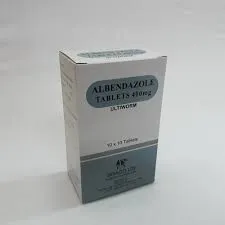- Afrikaans
- Albanian
- Amharic
- Arabic
- Armenian
- Azerbaijani
- Basque
- Belarusian
- Bengali
- Bosnian
- Bulgarian
- Catalan
- Cebuano
- Corsican
- Croatian
- Czech
- Danish
- Dutch
- English
- Esperanto
- Estonian
- Finnish
- French
- Frisian
- Galician
- Georgian
- German
- Greek
- Gujarati
- Haitian Creole
- hausa
- hawaiian
- Hebrew
- Hindi
- Miao
- Hungarian
- Icelandic
- igbo
- Indonesian
- irish
- Italian
- Japanese
- Javanese
- Kannada
- kazakh
- Khmer
- Rwandese
- Korean
- Kurdish
- Kyrgyz
- Lao
- Latin
- Latvian
- Lithuanian
- Luxembourgish
- Macedonian
- Malgashi
- Malay
- Malayalam
- Maltese
- Maori
- Marathi
- Mongolian
- Myanmar
- Nepali
- Norwegian
- Norwegian
- Occitan
- Pashto
- Persian
- Polish
- Portuguese
- Punjabi
- Romanian
- Russian
- Samoan
- Scottish Gaelic
- Serbian
- Sesotho
- Shona
- Sindhi
- Sinhala
- Slovak
- Slovenian
- Somali
- Spanish
- Sundanese
- Swahili
- Swedish
- Tagalog
- Tajik
- Tamil
- Tatar
- Telugu
- Thai
- Turkish
- Turkmen
- Ukrainian
- Urdu
- Uighur
- Uzbek
- Vietnamese
- Welsh
- Bantu
- Yiddish
- Yoruba
- Zulu
Ira . 29, 2024 04:17 Back to list
1% Ivermectin Injectable Solution for Goat Parasite Control and Management Guide
The Use of 1% Ivermectin Injectable for Goats Benefits, Dosage, and Considerations
Ivermectin, a broad-spectrum antiparasitic agent, has become a staple in veterinary medicine, particularly in the treatment of parasitic infections in livestock. For goat farmers, the injectable formulation of 1% ivermectin offers a convenient and effective way to combat a variety of external and internal parasites that can adversely affect the health and productivity of their herds.
Understanding Ivermectin and Its Mechanism of Action
Ivermectin is derived from a naturally occurring bacterium called *Streptomyces avermitilis*. It works by binding to specific chloride channels in the nervous system and muscle cells of parasites, leading to paralysis and death. This mechanism is highly effective against a wide range of parasites, including nematodes (roundworms), arthropods (ticks, mites, and lice), and certain types of ectoparasites.
Benefits of Using 1% Ivermectin Injectable for Goats
1. Broad Spectrum of Activity The 1% injectable formulation is effective against numerous parasitic infections, ensuring comprehensive treatment. This is particularly beneficial for goats that are susceptible to various internal and external parasites.
2. Ease of Use The injectable form allows for precise dosing and can be administered easily compared to oral formulations, which can sometimes be tricky with goats. This is especially advantageous for herds where certain animals may resist oral medication.
3. Long-Lasting Effects Ivermectin has a prolonged action, often providing effective control of parasites for several weeks. This means fewer treatments are needed over time, reducing labor and costs for goat farmers.
4. Minimal Withdrawal Time The withdrawal period for ivermectin in goats is relatively short, making it suitable for food-producing animals. Farmers can maintain food safety standards while treating their goats.
5. Improved Animal Health and Productivity By effectively controlling parasitic infestations, farmers can expect improvements in the overall health of their goats. Healthy animals show better weight gain, increased milk production, and enhanced reproductive performance.
Dosage and Administration Guidelines
1 ivermectin injectable for goats

The typical dosage for 1% ivermectin in goats is 0.2 mg per kg of bodyweight. The injectable formulation can be administered subcutaneously (under the skin) or intramuscularly (in the muscle). It is essential to calculate the correct dosage based on the weight of each goat to avoid under-dosing or overdosing, both of which can lead to ineffective treatment or potential toxicity.
To administer the injection
1. Gather the necessary materials, including the ivermectin vial, syringe, and needle. 2. Restrain the goat securely to ensure safety during the injection process. 3. Clean the injection site with alcohol to minimize the risk of infection. 4. Inject the ivermectin at the prescribed dose, using proper techniques to minimize stress for the animal.
Risks and Considerations
While ivermectin is generally regarded as safe, there are a few considerations that farmers should keep in mind
- Resistance Over-reliance on any antiparasitic drug can lead to the development of resistance in parasites. To mitigate this risk, it is advisable to rotate with other antiparasitic classes and to implement integrated parasite management strategies.
- Health of the Animal Ensure that the goat is healthy enough to handle medication. Sick animals may react differently to treatments and should be assessed before administering ivermectin.
- Drug Interactions Always consult with a veterinarian before combining ivermectin with other medications to avoid adverse interactions.
Conclusion
The 1% ivermectin injectable formulation is a vital tool for goat farmers looking to maintain the health and productivity of their herds. With its broad spectrum of activity, ease of administration, and effectiveness, it plays a crucial role in the fight against parasitic infections. However, like any medication, it should be used judiciously and in line with veterinarian advice to ensure responsible use and optimal results. Keeping goats healthy is not only beneficial for the animals themselves but also for the overall productivity and sustainability of goat farming operations.
-
Guide to Oxytetracycline Injection
NewsMar.27,2025
-
Guide to Colistin Sulphate
NewsMar.27,2025
-
Gentamicin Sulfate: Uses, Price, And Key Information
NewsMar.27,2025
-
Enrofloxacin Injection: Uses, Price, And Supplier Information
NewsMar.27,2025
-
Dexamethasone Sodium Phosphate Injection: Uses, Price, And Key Information
NewsMar.27,2025
-
Albendazole Tablet: Uses, Dosage, Cost, And Key Information
NewsMar.27,2025













